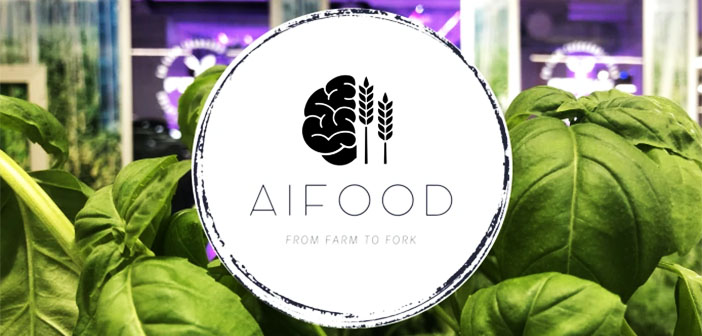Swegreen, a vertical farming innovation venture based in Stockholm, has received a SEK9.1 million (US$1 million) investment from Vinnova – the Swedish government agency that administers state funding for research and development. The funding will allow the company, along with research partners RISE and Mälardalen University, to further expand its platform for AI-driven vertical farming, and to evolve a digitalised supply chain from farm to fork.
Together Swegreen, Mälardalen University and RISE (Research Institutes of Sweden) will begin work on a new project, called ‘AIFood’, currently scheduled to run for two years. The project will focus on a proof of concept for autonomous orchestration of vertical farming facilities modelling, and on the development of an AI-based platform for precision farming, integration of vertical farms into host buildings, and autonomous interaction of production facilities with after-harvest actors.
How can AI improve food security?
This is the second investment from Vinnova that the three partners have received this year, having launched another project, ‘NeighbourFood’, in May, during the height of the Covid-19 health crisis. Neighbourfood will make use of artificial intelligence, digital twins, sharing economy platforms and innovative business models to help Sweden cope better with demand and supply chain issues during a pandemic, by ensuring the availability of nutritious leafy greens and a supply of fresh herbs and vegetables at a very local, ‘neighbour to neighbour’ level.
Vinnova’s investment is in line with its ‘AI in the service of the climate’ strategy, which seeks to support initiatives that focus on the use of AI in reducing various industries’ negative climate impact. The Swedish agency says that currently, the agricultural and food sector accounts for 30% of global greenhouse gas (GHG) emissions – and believes vertical farming could hold the key to greater efficiency and integration of farming facilities into urban infrastructure – enabling significant global GHG emission reduction.
“A data-driven approach on vertical farming has been Swegreen’s main focus from day one, and sustainability is embedded in our DNA as a greentech company,” commented Andreas Dahlin, CEO of Swegreen. “Hand in hand with our technological development, our concrete collaboration with the leading research and academic institutions of Sweden gives us the upper hand to lead this industry’s development as a spearhead enterprise – and our partnership with RISE and Mälardalen University keeps our position on the edge of the development, globally speaking.”
“AI can go beyond narrow and specific contributions,” added Dr. Baran Cürüklü, Mälardalen University, and AIFood project lead. “In this project, our aim is to demonstrate that complex and intricate systems can be orchestrated by AI, and contribute to rapid transition to a more sustainable agriculture, and even innovative services connecting the whole chain from producer to citizens.”
“I believe that urban food production can speed up climate transition because it has potential to engage citizens in local consumption and circular business models that both reduce food waste and unnecessary transports,” noted Dr. Charlie Gullström, senior researcher at RISE. “AI allows us to explore how to complement existing agricultural systems by actively involving stakeholders in the value chain as a whole. In this way AIFOOD really points the way to a new green deal.”
“We are proud of this collaboration with leading Swedish research institutions and researchers and see it as a successful model for how a private entity could collaborate with academia and offer its assets as research infrastructure for the good of the whole industry, in a planet and prosperity win-win model,” concluded Sepehr Mousavi, chief innovation officer, Swegreen.
“This green transformation of the food sector is dependent on empowering factors such as innovation and circularity enhancement, a connectivity-based and data-driven approach through the whole chain; and application of AI as an exponential enabler. Autonomous control of vertical farming facilities for maximum resource efficiency, scalability and preciseness of operations is of extreme and fundamental importance for both the industry and our company to move forward.”
More about SweGreen from Al Jazerra (July 2020):



